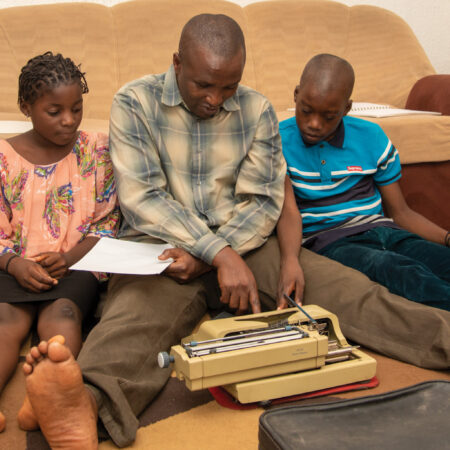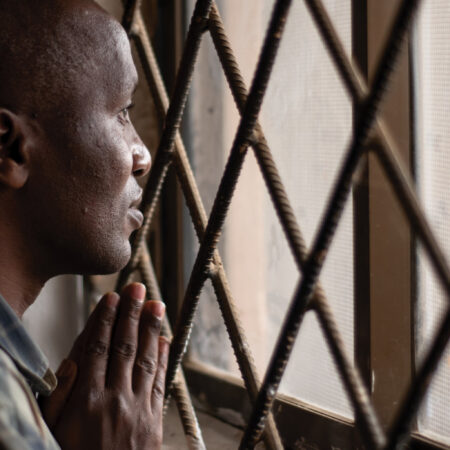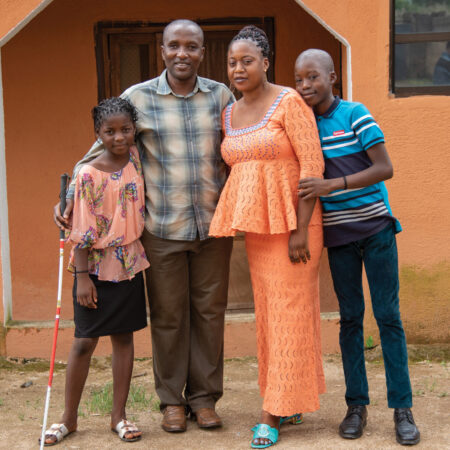Ibrahim Izang Aziobo tried to rescue as many Christians as he could during an attack by local Muslims. Although he lost his eyesight as a result, he gained a clear vision of how to love his enemies.
At about 4 a.m. on the morning after a local election in Jos, Nigeria, Ibrahim awoke to someone banging on his apartment door. “They have come!” his niece cried out. “They have started!”
The 2008 elections had been particularly divisive. Before results were even posted, members of the city’s predominantly Muslim Hausa-Fulani majority began protesting the Christian candidate’s expected win.
Ibrahim jumped out of bed. He knew his niece’s warning meant Christians were under attack in the town where he was serving as an election worker. Thankfully, his wife, Ana, was safe at home in a different city.
By the time Ibrahim came out of his room, his niece had already left and he noticed that the neighboring tenants were gone, too. Hearing gunfire, he looked around and saw people running away. Ibrahim, however, ran toward the gunfire to see the attackers for himself.
“What I saw was dreadful,” he said. A parade of militant Islamic Fulani armed with sticks, machetes and guns were chanting, “Allahu akbar! Come! Let us fight Jihad!”
Ibrahim ran back toward his apartment to help protect his neighbors. Along with other Christians, he helped women hide in a church, barricaded roads with whatever he could find and threw rocks at the approaching mob to slow them down.
“We tried to curtail them,” Ibrahim said. “I thought to myself, ‘With this number of people, can’t they just overrun us?’ I knew that God was with us.”
As he passed a burning house, Ibrahim heard the sound of children’s voices.
He pulled the hood of his jacket over his mouth and entered the smoke-filled structure. But as he walked through the house, he noticed the silhouettes of two men crouched in a corner. One of the men, who had been waiting in ambush, shot Ibrahim in the face. “I heard a loud sound and found myself on the ground,” Ibrahim said.
In severe pain, he covered his face with his hands. A young man who had heard the gunshot soon came to his aid. Unable to carry Ibrahim, the young man dragged his nearly lifeless body until three other people arrived to help carry him to a medical clinic, where physicians began work to stabilize him.
After losing hope that he would survive, the doctors turned to other attack victims who appeared to have a better chance. But one nurse, realizing Ibrahim was still conscious, gave him medication, stopped the bleeding and treated his wounds. He and three other gunshot victims were later transported to Jos University Teaching Hospital, where Ibrahim’s sister caught up with him.
Then they got the bad news: A CT scan of Ibrahim’s skull revealed that he would never see again. Ibrahim burst into tears, but his sister quickly reassured him. “Have you forgotten God?” she asked.
Lying in the hospital bed, Ibrahim surrendered his life fully to Christ. “I was not born again before the attack came and I lost my sight,” he said. “I gave my life to Christ after the attack happened. Since then, I have not looked back.”




